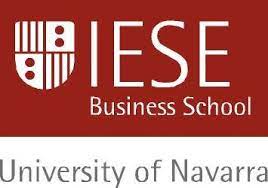HOW TO PREPARE FOR THE TOEFL LISTENING?
Listening is one of the 4 sections of the TOEFL iBT. It does not usually generate as much respect as Speaking or Writing. However, as a TOEFL candidate you should know that, in Spain, the average candidate scores a little less than 1 point higher than in the other 2 sections mentioned. In this article we tell you how it is structured, what kind of questions and what skills you should develop to improve your Listening score.
Table of Contents
The Listening Section Structure
The Listening section of the TOEFL iBT can last from 41 to 57 minutes, depending on the number of audios that appear on the day of your test (there can be a minimum of 5 and a maximum of up to 7 audios). Now, there are two types of audios that you will be presented with during the test:- Short academic lessons accompanied by a series of 6 questions. These use more formal language.
- Conversations between students or between teachers and students, which will be followed by a series of 5 questions after each conversation. These audios are more casual than the previous ones, but still take place in an academic environment.

Would You Like to Know How to Prepare for the TOEFL in 4 Weeks?
What Kind of Questions Might You Encounter?
Because we like to give you information that will add value to your preparation, we have prepared a list of the types of questions that might appear on this part of the TOEFL according to the ETS organization.- Questions about the main idea or purpose of the audio. The first question you will see after listening to each audio will ask what the main idea of the conversation or academic talk was. In some cases, you may not be asked explicitly about the main idea but about the purpose of the audio.
- Questions about details of the conversation: This is the point where having taken notes will be of great help to you. With the detailed questions, the TOEFL aims to assess your ability to understand a lesson or an academic conversation “in more depth”.
- Questions about the meaning of an expression in context: This type of question seeks to assess your understanding of English expressions within a given context.
- Questions about the attitude of the interlocutors: To answer these questions correctly, pay attention to phrases that may indicate enthusiasm, acceptance, rejection or apology for having expressed certain ideas. Tone of voice can also be a big factor in helping you decipher how the person is feeling.
- Questions about the structure of the lesson: This is another one of those questions where your notes will help you. Here, they will point you to some example or detail that the teacher gave in the lecture, and ask you about why the teacher gave that example.
- Questions about how the ideas in the academic lecture are connected: In this type of question, you may be asked to organize a series of ideas, group or classify concepts, or order sentences in a cause-and-effect relationship as explained by the professor in the audio. This is one of the most complex parts of Listening.
- Inference questions: As in all inference questions, here you will be tested on your ability to understand information that is suggested but not explicitly stated in the audios.
How to Improve Your Listening Score?
To conclude this article, we leave you with a brief summary of a series of skills that you should acquire/perfect to improve your results in this section:- Be able to understand and communicate what the main idea of the text is. It is very common that the first question of the Listening may be directed about the gist.
- Identify the important details of the audio. Pay attention to transitional expressions such as “However”, “Ironically”, “Indeed”, … These expressions tend to introduce information that is frequently asked about.
- Familiarize yourself with idioms and phrasal verbs and their functionality. In the audio, the teacher and/or students will use some expression of the type mentioned and you will be asked for the meaning. Be sure to prepare for this.
- Learn how to organize your notes. Understand how in the audio the teacher organizes his lesson. Ask yourself questions such as Are the events in chronological order? What is the first thing the teacher mentions? Are there any flashbacks used? To take notes correctly remember:
- Don’t try to write down EVERYTHING you are hearing. Your mission is not to transcribe the audios, but to have support to help you remember important points.
- Learn to recognize how the audios are structured. After you have listened to several TOEFL audios, you will notice that the lectures or conversations follow a similar pattern:
- In the first minute, the topic or main idea is introduced.
- Then two or three secondary ideas are presented.
- The topic is concluded by giving an example, additional information or a summary.
- Write key words and identify the relationship between ideas. Use arrows, lists, numbers to remember how ideas are related to each other.
- Don’t disconnect from the audio at ANY point until the end. This is possibly the most difficult skill to acquire because of its obviousness. We are going to leave you an example inspired by an exam so that you can understand what we mean.
“For example, at the beginning of the lecture the professor could say, “Open your books to chapter 18. We are going to review the content on manatees.”
THEN at the end (after 3-4 minutes), the professor may say, “That’s all for today, be sure to study the next chapter in your textbook!”
What is the next chapter the students should study?
- Chapter 18
- Chapter 19
- Chapter 20
- No chapter is mentioned
Hopefully this blog post has resolved all your doubts. However, if you have questions in regards to your TOEFL preparation, get in touch and we will let you know how EPIC PREP can help you achieve your goals. Differently, if you prefer to continue reading here is the link to our TOEFL courses page.








